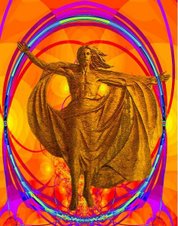Wednesday, August 22, 2012
Form Of Intellect
http://www.kevinnottingham.com/2012/06/07/form-of-intellect-on-being-gay-in-hip-hop-its-reality-whats-the-problem/?utm_source=crowdignite.com&utm_medium=referral&utm_campaign=crowdignite.com
: On Being Gay In Hip Hop: “It’s Reality. What’s The Problem?”
by Phillip Lamarr Cunningham, Ph.D. on June 7, 2012
An often hyper-masculine and hyper-sexualized art form and culture, Hip Hop has relied upon the perception that multi-sexuality is a foreign concept to be shunned or a lifestyle embraced by a secretive few. The contempt towards gays and lesbians by a few artists is evidence of the former; the constant speculation about which emcees are supposedly gay or lesbian is evidence of the latter. Unfortunately, Hip Hop has languished far behind other popular genres—especially pop and rock—in developing a more progressive attitude towards lesbian, gay, bisexual, and transgendered (LGBT) communities.
What makes this so unfortunate is that, like rock at its formation, these communities certainly influenced Hip Hop. In short, just as Little Richard helped give birth to rock ‘n roll, much of the LGBT communities’ influences on Hip Hop can be seen in its essential pillars. One needs look no further than Hip Hop’s early relationship with disco, a dance and music culture often linked to LGBT communities and deeply embedded in Hip Hop’s foundation.
But before emceeing and deejaying coalesced into Hip Hop as we know it, disco served as its backbeat. In fact, before Hip Hop entered the national lexicon, it was called disco rap. Just as he rocked block parties in his early career, Kool Herc—the man most often credited as Hip Hop’s founder—deejayed at a disco club called The Sparkle. Disco not only shaped deejaying but also b-boying. And break dancing pioneers such as Adolfo “Shabba-Doo” Quinones explicitly have stated that they borrowed moves such as “wacking” from gay disco dancers. So the epitome of Hip Hop’s connection to disco is its first video, the controversial, problematic, yet indisputably classic “Rapper’s Delight” by The Sugarhill Gang, in which all of disco’s standards—from the requisite disco ball, fashion, dancing, and interpolation of Chic’s disco hit “Good Times”—are present.
Of course, Hip Hop eventually would come into its own and like rock, would toss away its connection to disco. In essence, as did one of its most heralded producers, Hip Hop exchanged glam for gangsta. In doing so, much of its connections to LGBT communities became less overt, and the relationship turned hostile. Though we often consider the Golden Age a somewhat more positive era than the present, one of its unfortunate legacies was its homophobia, especially the frequent use of the slur faggot. Because of this antagonism, it is easy to delude ourselves that LGBT communities have had no place in Hip Hop. Furthermore, it forces LGBT artists, fans, and others to remain closeted or on the outside looking in.
So are things improving? Has Hip Hop reached a point in which it can be more accepting? Given the recent backing of Obama’s newfound approval of gay marriage by prominent artists such as Ice Cube, Jay-Z, and T.I., one might be inclined to believe so. However, in her article “Has Obama Made Hip-Hop Rethink Masculinity?,” Washington Post contributor Rahiel Tesfamariam cautions us that it may be “premature to conclude that hip-hop is on the cusp of a post-homophobic era based on the opinions of a handful of rappers who may not yet be willing to personify the tolerance that they have recently preached.”
Tesfamaraiam is correct, for while these artists advocate for marriage equality, there is still very little being said about acceptance of LGBT communities within Hip Hop. Though artists such as Fat Joe have acknowledged the likelihood of gay emcees, Hip Hop’s David Bowie, Elton John, or Freddie Mercury has yet to emerge. Indeed, as witnessed in the recent Mobb Deep controversy (in which Havoc rumored that partner Prodigy engaged in same sex affairs in prison) or the constant speculation about artists such as Lil’ Wayne to Kanye West, questioning a male emcee’s sexuality remains an all-too-effective means of damaging his credibility.
And what of women in Hip Hop? Do lesbians, for example, fare any better? Recently, Odd Future’s Syd the Kyd (of the duo The Internet) has been rather vocal about the suppression of lesbian artists in Hip Hop in particular. In a LA Weekly interview she laments, “I’ve come across so many dyke singers, dyke rappers, people with real heart and passion, and it’s a shame that not one of them has made it.” Refusing to remain closeted to the Hip Hop community, Syd released the controversial video “Cocaine,” in which she removes any doubts about her sexuality. Her rationale? “I decided to do it because I wish I had someone like that [an openly gay female artist] while I was coming up.”
Also over a decade ago, Queen Pen challenged Hip Hop’s homophobia. In 1998, she joined with Me’shell Ndegecello—herself one of the few openly bisexual African-American mainstream artists—for “Girlfriend,” a track in which she brags about stealing a man’s girlfriend. In “A Fiesty Female Breaks a Hip-Hop Taboo,” a New York Times article about the track, Queen Pen was coy about her sexuality; however, she made a statement about her possibly being a lesbian that is still fitting for Hip Hop as a whole: “It’s reality. What’s the problem?”
Good question.
In Pick Up The Mic, a documentary about the underground LGBT Hip Hop community, openly gay filmmaker and Hip Hop enthusiast Maurice Jamal admits, “You know the thing that draws kids to hip-hop, whether its gay or straight, white or black, city or country, is that hip-hop is raw. It’s real.”
Indeed, “realness” is an incredibly important part of the Hip Hop aesthetic. So does its denial of LGBT communities compromise this realness? How real can Hip Hop be if it is willing to deny a part of its foundation, a part of its present, and a likely part of its future?
Nottinghamers…what are your thoughts? Chime in and let us know in the comments!
Subscribe to:
Post Comments (Atom)







No comments:
Post a Comment